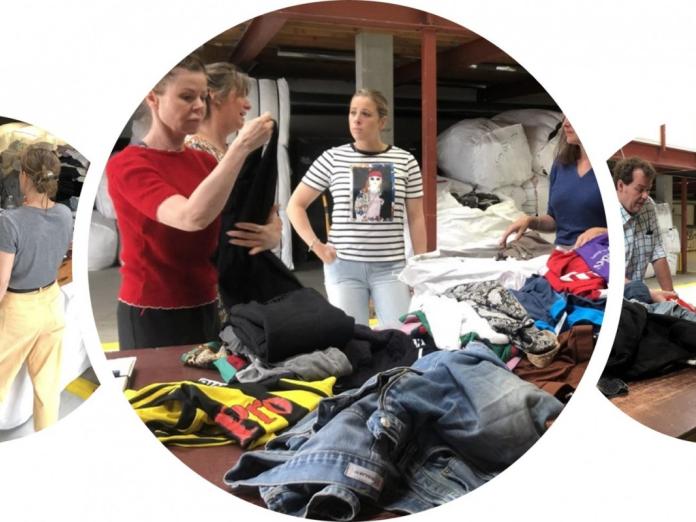Project Report from ReYarn Partnership Released

The City of Copenhagen's current Resource and Waste Plan for 2024, "Circular Copenhagen", encompasses a wide array of initiatives and objectives. This includes the aspiration to enhance the collection and improved treatment of used textiles from households in Copenhagen.
The vision behind the ReYarn partnership was to formulate and test circular solutions for managing discarded textiles from citizens (post-consumer textiles). The primary aims were to gain fresh insights, practical experience, and concurrently bolster the City of Copenhagen's commitment to circular and environmentally conscious procurement practices. The partnership was founded on this premise and sought to learn how to extract optimal value from used textiles belonging to Copenhagen residents.
As the national legislative requirements for a separate textiles collection scheme were being formulated during the project's duration, the initial phase, which involved collection methods and associated considerations, was not addressed within the scope of the ReYarn pilot.
The project was structured around four key objectives:
- Developing manual pre-sorting practices and capabilities in Denmark with a focus on increasing local reuse and minimizing waste.
- Facilitating collaboration between local sorting facilities and a recycling company to fully harness the value of used textiles while maintaining transparency throughout the value chain.
- Acquiring knowledge and practical experience in crafting circular textile products intended for procurement by the City of Copenhagen and the public sector.
- Providing insights that contribute to the formulation of future procurement criteria for textiles within a municipal/public context.
Key Insights From the Project
- In circular collaborations, participants must not only cooperate but also adopt a different and entirely novel approach, both in terms of physical actions and operational strategies. Even professionals require time to adapt to new sorting methods.
- Only a small proportion of the collected textiles (original from Copenhagen) was deemed suitable as "high-quality reusable clothing" viable for sale in Danish reuse shops.
- Mechanically recycled fibers offer distinct advantages, as they can be processed, even from relatively intricate fiber blends/compositions. The ReYarn project revealed that textiles based on mechanically recycled fibers were well-suited for home textiles (such as towels, pillowcases, curtains, etc.) as well as fabric suitable for production of lighter workwear .
- Public tenders can play a significant role in generating demand for textiles/products based on recycled fibers. However, they must be structured to encourage innovation, thus aiding in the promotion of a still-evolving market.
- Given that most tenders encompass a wide array of product categories (each with varying utilization purposes and lifespans), consideration should be given to the possibility of reducing the number of included product categories. This approach could potentially align more effectively with circular procurement requirements.
- Since the market still operates according to linear principles, it has been difficult for the ReYarn partners to become fully circular all at once. Innovation takes time and is resource-intensive (time/finance). In the project, the partners worked to test and develop at the same time as running their business. It requires dedication and prioritization to change to a more circular business model and practice.
Wish to know more about the project results?
Please download the report (opens new website) if you wish to go more into detail with the results from the project.